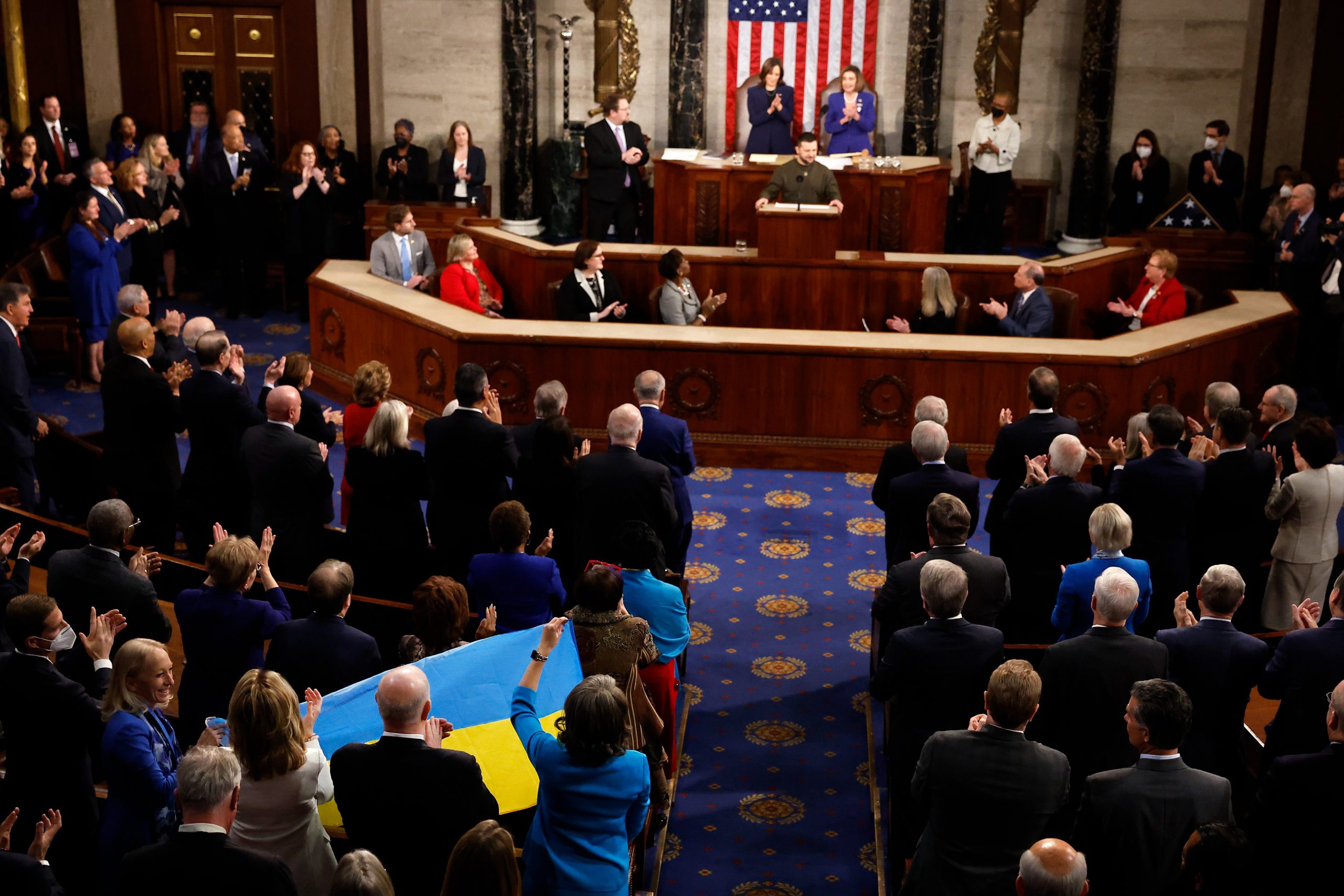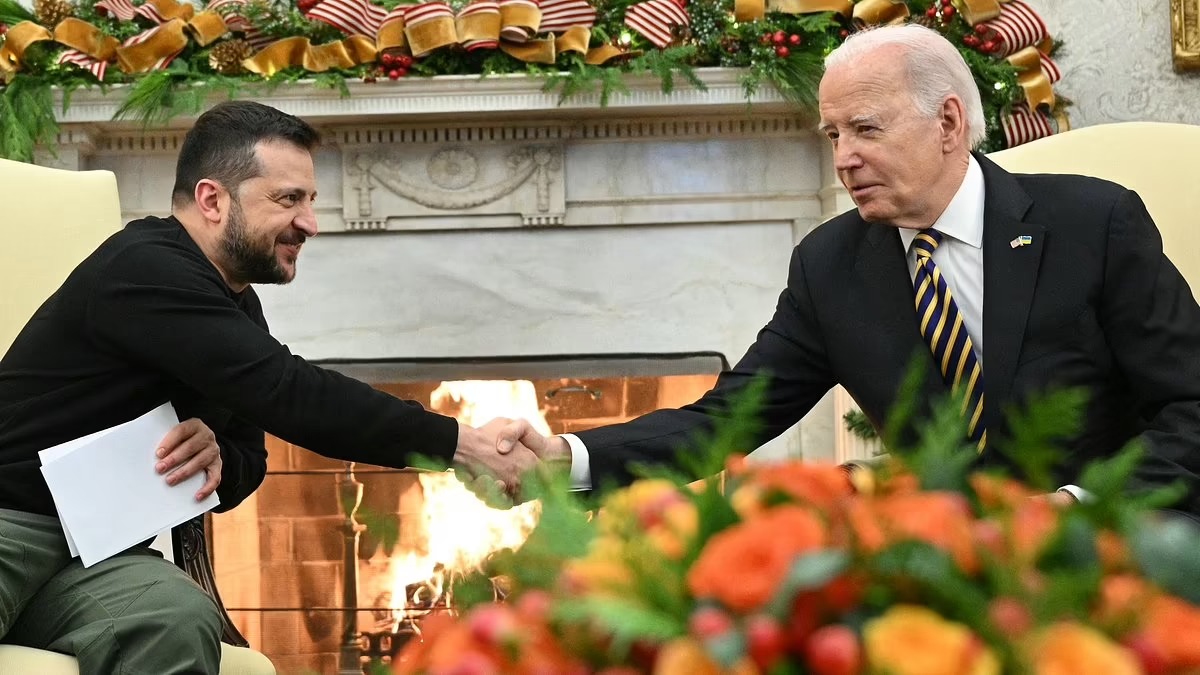Concerns are mounting over the stalled U.S. aid to Ukraine in the Republican-held House, as the country’s war with Russia approaches its second anniversary. Despite bipartisan support for a $95 billion aid package, House lawmakers left Washington a day early for a scheduled break without taking action.
Lawmakers assure that the U.S. will ultimately provide Ukraine with more weapons to defend itself in Europe’s bloodiest war since World War II. However, the precise path and timing for the aid to pass through Congress remain uncertain.
Representatives Bill Pascrell (D-N.J.) and Joe Wilson (R-S.C.) emphasized their commitment to Ukraine at a recent news conference. Pascrell stated, “With all of our faults and warts, we’ve been there. And we are not leaving.
We’re not going to abandon the Ukrainian people.” Wilson echoed this sentiment, saying, “Absolutely. We want to stand with Ukraine.”

US Lawmakers (Credits: NPR)
Several lawmakers will be attending the Munich Security Conference in Germany, where they plan to convey the same message of support for Ukraine.
However, the Senate, which has advanced the arms package for Ukraine, is not scheduled to return to Washington until February 26, and the House until February 28. Their immediate priority upon return will be keeping parts of the government open, with little urgency apparent for addressing the Ukraine aid.
Meanwhile, Ukraine is reportedly facing ammunition shortages and is at a disadvantage in terms of artillery compared to Russia. The recent loss of the town of Avdiivka to Russian forces further underscores Ukraine’s need for support.
John Kirby, the White House’s national security communications adviser, highlighted the urgency, stating, “Because Congress has yet to pass the supplemental bill, we have not been able to provide Ukraine with the artillery shells that they desperately need to disrupt these Russian assaults.”
Various options are being considered to expedite the aid, including approving the Senate package in the House, which Speaker Mike Johnson (R-La.) has shown little interest in.
Another option would be a discharge petition, which would require a majority of House members to force a vote on the Senate bill, but this process could take weeks and faces opposition from some Democrats.
Regardless of the method chosen, time is of the essence as Ukraine may start another counteroffensive in April. Lawmakers are under pressure to act swiftly to provide the necessary support to Ukraine.























